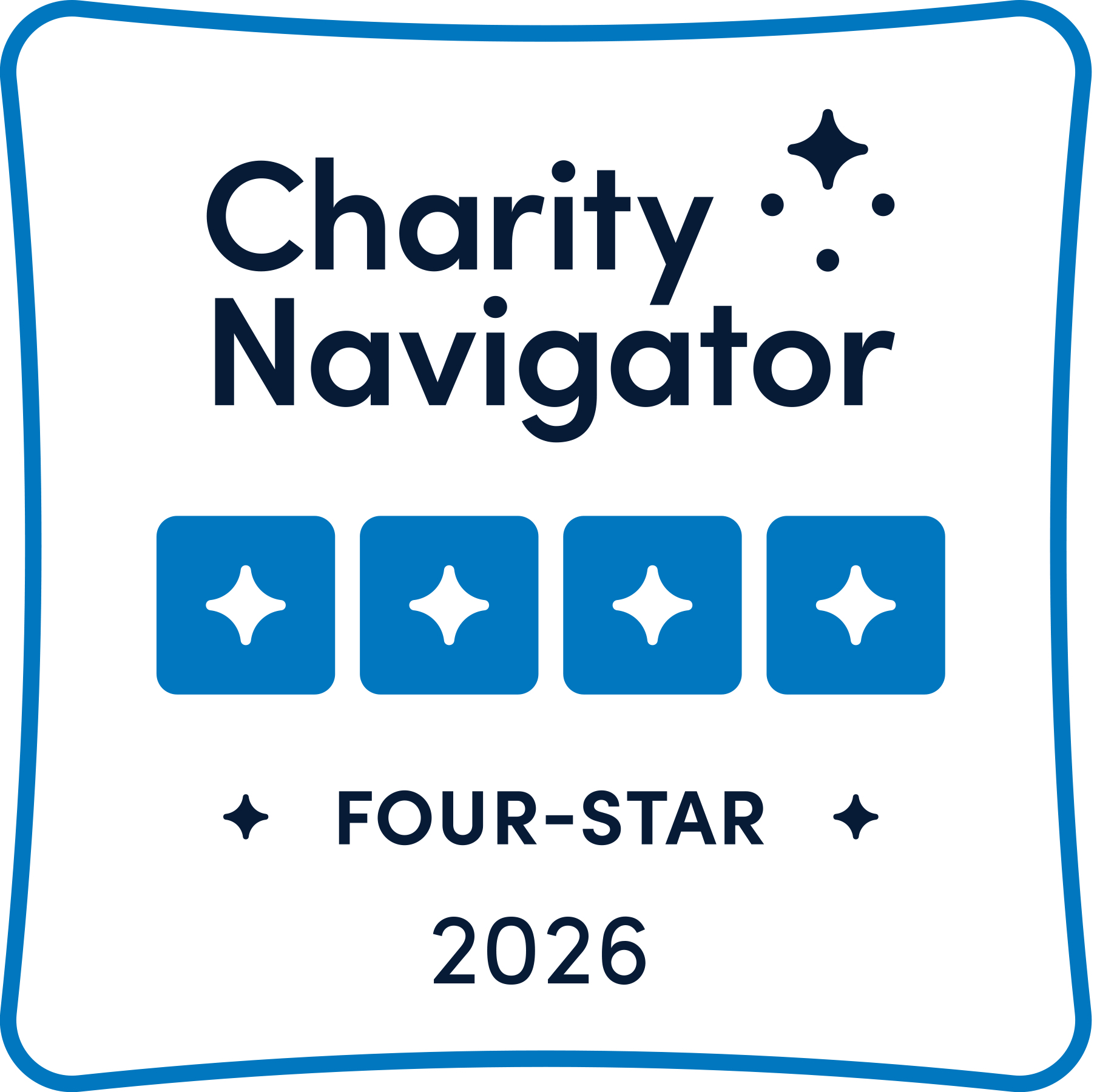2018 Award and Grant Recipients
Below are brief biographies for American Skin Association's 2018 grantees. Among the information included is the title of the grant, the name of the sponsoring institution and the focus of the grant recipient's research.
-

Roger S. Lo, MD, PhD
2018 – 2020 Abby S. and Howard P. Milstein Innovation Award for Melanoma/Non-Melanoma Skin Cancer Research (MIA)
David Geffen School of Medicine at UCLADr. Lo works in the field of cancer genetics and genomics, using next generation sequencing approaches to uncover the basis of resistance to both molecularly targeted therapies and immune checkpoint inhibitors. His lab has focused on how BRAF-mutant melanomas acquire late resistance to inhibitors, including how cell signaling, epigenetic reprogramming, melanoma cell dormancy and melanoma phenotypic plasticity may regulate resistance. The drive of his research is to uncover new therapeutic opportunities that can directly tested in clinical trials. Dr. Lo’s research has been supported by the NIH and by all of the major funders of melanoma research including the American Skin Association and the Dermatology Foundation. He has published his findings in top-tier journals such as Cell, Nature and Science, among others. It is clear that support of Dr. Lo’s research will push forward the development of novel therapeutic approaches to melanoma.
-

Neil Box, PhD
2018 Daneen & Charles Stiefel Investigative Scientist Award
University of Colorado School of Medicine
Topic: Uncovering Gene — UV Interactions in SkinDr. Box is Associate Professor within the Departments of Dermatology and Epidemiology at the University of Colorado Anschutz Medical Campus, is an emerging leader in the study of melanoma risk. He has made important contributions to the understanding of melanoma risk mediated via genetic factors and environmental exposures. Dr. Box is dedicated to educating a new generation of melanoma investigators.
-

Deborah Lang, PhD
2018 Daneen & Charles Stiefel Investigative Scientist Award
Boston University School of Medicine
Topic: Melanoma Progression through the Subversion of Melanocyte Gene Regulatory PathwaysDr. Lang is Associate Professor of Dermatology at Boston University, is committed to educating the next generation of melanoma researchers. Dr. Lang leads a lab focused on the molecular biology of melanoma. Her cancer research and findings related to melanocyte stem cells have had broad impact, with discoveries into the molecular mechanisms of melanoma revealing potential "Achille's heel" factors that, if targeted and inhibited therapeutically, would lead to catastrophic consequences to the cancer cells. These findings may provide next generation treatment options for cancer patients.
-

Carolyn Lee, MD, PhD
2018 ASA Milstein Research Scholar Award in Melanoma/Non-Melanoma Skin Cancer
Stanford University
Topic: Non-Coding Driver Mutations in High-Risk Skin CancerCarolyn Lee, MD, PhD earned her undergraduate degree at Yale prior to completing her MD and PhD studies at Georgetown. Upon completing her dermatology residency training at Stanford, she undertook post-doctoral fellowship training in epithelial biology in the laboratory of Paul A. Khavari, Carl J. Herzog Professor and Chairperson of Dermatology at Stanford. Dr. Lee is currently an Assistant Professor in the Department of Dermatology at Stanford. Research in her laboratory focuses on discovering and functionally characterizing new oncogenes and tumor suppressor genes in skin cancer by combining genomics and proteomics-based approaches with animal and human skin tissue models. Her project funded by the ASA seeks to highlight new genes with previously unappreciated roles in cancer progression to provide the foundation for future efforts directed at effective metastasis prevention and non-surgical therapeutics.
-

Jonathan Zippin, MD, PhD
2018 ASA Calder Research Scholar Award Vitiligo/Pigment Cell Disorders
Weill Cornell Medicine
Topic: Novel cAMP Signaling Pathway Regulates Melanosome pH and PigmentationJonathan Zippin MD, PhD attended Cornell University where he received a Bachelor's of Science with Honors. He then attended the Rockefeller/Cornell/Sloan-Kettering Tri-Institutional MD/PhD program. He completed his general medicine internship at the Mount Sinai Hospital in New York City, followed by a residency in dermatology at the Weill Cornell Medical Center - New York Presbyterian Hospital. Dr. Zippin is an Assistant Attending Dermatologist and Assistant Professor of Dermatology and Pharmacology at Weill Medical College of Cornell, and is the Associate Chair of Research for the Department of Dermatology. For the past 18 years, he has helped to establish the role of distinct cAMP microdomains in mammalian cell biology and revealed new mechanisms in insulin release and cancer. For the past six years, Dr. Zippin’s laboratory has been dedicated to understanding the role of cAMP microdomains in skin disease. Recently, his lab has uncovered a non-canonical cAMP signaling pathway that regulates pigmentation by directly controlling melanosome pH without altering pigment gene expression. In addition, they have identified small molecules capable of altering pigmentation in cells and mice. Over the next year, they will explore how this newly described signaling cascade regulates pigmentation in melanocytes lacking MC1R or OCA2 activity.
-

Richard Ahn, PhD
2018 ASA Research Scholar Award
University of California, Los Angeles
Topic: Predicting Psoriatic Arthritis Occurrence from Population-Scale Data Using Machine-LearningRichard Ahn, PhD has recently been appointed as an Assistant Research Professor at the Institute for Quantitative and Computational Biosciences and the Department of Microbiology, Immunology, and Molecular Genetics at the University of California, Los Angeles (UCLA) where his research will focus on combining multi-omics data, translational immunology, and population-scale EMR data to advance precision medicine efforts. He is now investigating the use of EMR and genome-wide genetic data to predict psoriasis and psoriatic arthritis in a large HMO cohort. Prior to his appointment at UCLA, Dr. Ahn was a postdoctoral fellow in the Department of Dermatology at the University of California, San Francisco (UCSF) in the laboratory of Dr. Wilson Liao. In the Liao lab, Dr. Ahn employed high-throughput methods such as GWAS, whole-exome sequencing, and RNA-seq along with systems biology approaches to elucidate the molecular etiology and pathways implicated in psoriasis and hidradenitis suppurativa. He has also contributed to T cell profiling studies using single-cell RNA-seq and the role of killer cell immunoglobulin-like receptors (KIR) in psoriasis. Dr. Ahn earned his BA in History from the University of California, San Diego (UCSD), an MA in Economics from San Diego State University, and a PhD in Epidemiology from the University of California, Irvine (UCI).
-

Mayumi Ito, PhD
2018 ASA Mulvaney Family Foundation Research Grant for Vitiligo and Pigment Cell Disorders
New York University School of Medicine
Topic: Understanding Mechanisms for Melanocyte Regeneration Through Stem Cell BiologyMayumi Ito, PhD is an Associate Professor in The Ronald O. Perelman Department of Dermatology at New York University School of Medicine (NYU). Dr. Ito performed her postdoctoral studies in the laboratory of Dr. George Cotsarelis in the University of Pennsylvania before joining the faculty at NYU, where her research program focuses on understanding stem cell regulations in cutaneous tissues including the hair follicle and the nail. Her research team identified signaling pathways that govern regenerative behaviors of melanocyte stem cells for hair pigmentation. Her group also demonstrated the role of hair follicle melanocyte stem cells to regenerate melanocytes of the skin epidermis. Her studies hold great promise to understand pigmentation problems including hair graying and vitiligo.
-

David Miller, MD, PhD
2018 ASA Research Grant for Skin Cancer and Melanoma
Massachusetts General Hospital
Topic: JAK1 Inhibition to Overcome BRAF/MEK Inhibitor Resistance in V600-BRAF Mutant MelanomaDavid M. Miller, MD, PhD is a board-certified dermatologist as well as a senior fellow in Hematology/Oncology. Dr. Miller graduated with Honors from Boston College where he earned a BA in Political Science. He received his MD and PhD degrees in Biomedical Sciences from the University of Massachusetts. He then completed a Dermatology residency at Columbia University Medical Center followed by a residency in Internal Medicine at Brigham and Women’s Hospital. He is currently also pursuing fellowship training in Hematology/Oncology at Beth Israel Deaconess Medical Center, specializing in the management of advanced skin cancers. His research is focused on developing therapeutics for skin cancers and understanding mechanisms of therapeutic resistance. Dr. Miller’s clinical interests include cutaneous oncology with a focus on the detection and treatment of high-risk skin cancers including melanoma, merkel cell and keratinocyte carcinoma.
-

Gwennaelle Monnot, PhD
2018 ASA Research Grant for Psoriasis/Inflammatory Skin Diseases
Columbia University Medical Center
Topic: Identification of Pathogenic T-cell Receptor Chains in Alopecia Areata Using Single Cell SequencingGwennaëlle Monnot, PhD is a postdoctoral research scientist in the department of Dermatology at Columbia University Medical Center. After obtaining her Msc in Immunology at the London School of Hygiene and Tropical Medicine (2011), she studied CD8+ T cells transfer for cancer therapy at the University of Lausanne, and obtained her PhD in 2016. She currently works on understanding the immune mechanisms of autoimmune skin diseases in the laboratories of Dr. Angela Christiano and Dr. Annemieke de Jong.
-

Bryan Sun, MD PhD
2018 ASA Research Grant for Childhood Skin Diseases/Disfigurement
University of California San Diego
Topic: Impact of Becker’s Nevus-Associated ACTB Mutations on Hedgehog SignalingDr. Sun is an Assistant Professor of Dermatology at the University of California San Diego. He is interested in understanding genetic regulators of skin development and disease, and studies this question from patient-oriented and bench-oriented approaches.
-

Howa Yeung, MD
2018 ASA Research Grant for Quality of Life/Health Services/Outcome Studies
Emory University School of Medicine
Topic: Quality of Life Impact from Cutaneous Toxicity of Immunotherapy for MelanomaHowa Yeung, MD is an Instructor of Dermatology at Emory University School of Medicine. Dr. Yeung serves as a faculty member of the Programs, Research, and Innovation in Sexual Minority (PRISM) Health at the Emory University Rollins School of Public Health and the Director of Outcomes Research at the Itch Translational and Clinical Home at Emory (ITCH-E). He received his MD from New York University School of Medicine, pursued dermatoepidemiology research fellowship training at the University of Pennsylvania, and completed his dermatology residency at Emory University. He is currently pursuing an M.Sc. in Clinical Research at Emory University Laney Graduate School. His research focuses on measurement of quality of life and patient-reported outcomes in cutaneous toxicity of immunotherapy in patients with advanced melanoma. He additionally applies epidemiology and health services research methods to optimize skin cancer prevention and care in sexual and gender minority populations and persons living with HIV.
-

Ms. Adriana Lopez
2018 ASA Hambrick Medical Student Grant Targeting Melanoma and Skin Cancer
Columbia University Vagelos College of Physicians & Surgeons
Topic: Validation of a UV-radiation biomarker panel for risk stratification and early prevention of UV-induced skin cancersAdriana Lopez is a fourth-year medical student at Columbia University Vagelos College of Physicians & Surgeons. She graduated from Colgate University in 2010 where she studied environmental science following which, she completed the Postbaccalaureate Premed Program at Columbia University. She is participating in a research year at Columbia University Medical Center where she is assessing the validity of an ultraviolet (UV) radiation biomarker panel for risk stratification and early prevention of skin cancer. In addition to her basic science research pursuits, Adriana is also extremely involved in numerous public health initiatives which aim to reduce the incidence of skin cancer in New York State.
-

Ms. Aubriana McEvoy
2018 ASA Hambrick Medical Student Grant Targeting Melanoma and Skin Cancer
University of Washington - Nghiem Lab
Topic: Calculating Outcomes in Merkel Cell Carcinoma: A Multivariate Risk AnalysisAubriana McEvoy is originally from Chicago, Illinois, and attended the University of Michigan for her undergraduate degree in Economics and Spanish. She had a non-traditional path to medicine through finance, public health, and healthcare administration. Since entering medical school at the University of Washington, she has been inspired by the physical, emotional, and financial challenges patients face. She hopes to contribute to evidence-based care of patients with skin cancer through clinical and translational research. During the past two years, under the guidance of Dr. Paul Nghiem in the UW Division of Dermatology, and with funding from an NIH TL-1 grant through the UW Institute for Translational Health Sciences (ITHS), she has led a project to develop stage-specific recurrence-free survival statistics of Merkel cell carcinoma – a particularly aggressive skin cancer. They also further characterized MCC recurrences (location and timing) to inform future surveillance guidelines.
-

Mr. Mack Su
2018 ASA Hambrick Medical Student Grant Targeting Melanoma and Skin Cancer
Massachusetts General Hospital
Topic: Enhancing Response to Immune Checkpoint Blockade in MelanomaMack Su is a fifth year MD-PhD student at Harvard Medical School. He graduated magna cum laude from Yale University, majoring in Molecular Biophysics and Biochemistry and Economics. He is interested in cancer immunology, and his current research focuses on mechanisms of immunotherapy response in melanoma.
-

Mr. Khiem Tran
2018 ASA Hambrick Medical Student Grant Targeting Melanoma and Skin Cancer
Topic: The Role of man1a1 in Immune Evasion During Progression of MelanomaKhiem Andrew Tran is a second-year student at the University of Arizona College of Medicine. He graduated from University of California, San Diego with a Bachelor's Degree in Biochemistry, and UCLA with a PhD in Biochemistry and Molecular Biology. His current research focuses on immune evasion properties of melanoma and other malignancies. Khiem grew up in Southern California, and his other passion is understanding and finding ways to reduce healthcare disparities for the underserved.
-

Ms. Nicole Urman
2018 ASA Hambrick Medical Student Grant Targeting Melanoma and Skin Cancer
Stanford University Department of Dermatology
Topic: Phase 2 Trial of Topical Remetinostat for Basal Cell CarcinomaNicole Urman is a first-year medical student at Stanford University School of Medicine. She graduated from Stanford University with a Bachelor's Degree in Molecular, Cellular, and Developmental Biology with a minor in Economics. Her current research focuses on assessing the efficacy of new clinical treatments for dermatologic diseases including basal cell carcinoma as part of the Sarin Lab. Nicole is originally from Tucson, Arizona.
-

Mr. Todd Wechter
2018 ASA Hambrick Medical Student Grant Targeting Melanoma and Skin Cancer
New York University School of Medicine
Topic: Targeting EZH2 in the Treatment of Non-Sun Exposed MelanomaTodd Wechter is a fourth-year medical student at Stony Brook University School of Medicine. He is participating in a research year with Dr. Iman Osman at New York University School of Medicine, where he is studying the role of the histone methyltransferase EZH2 in acral lentiginous melanoma. He graduated summa cum laude from Union College with a Bachelor’s Degree in Biology. His undergraduate research focused on examining the paddlefish digestive tract for evidence of a rudimentary colon. Todd is originally from New York, NY.
-

Mr. Albert Young
2018 ASA Hambrick Medical Student Grant Targeting Melanoma and Skin Cancer
University of California, San Francisco
Topic: Using a Deep Learning Algorithm to Diagnose Melanoma from Digital ImagesAlbert Young is a second-year medical student at University of California, San Francisco School of Medicine. He graduated magna cum laude with a Bachelor of Arts in Human Developmental and Regenerative Biology from Harvard University in 2015. His undergraduate research investigated kinase-dependent remodeling of the pathogen-environment interface in Mycobacterium tuberculosis. He is currently pursuing research in the Department of Dermatology at UCSF exploring the automated prediction of melanoma from digital images using deep learning. Mr. Young is originally from Fullerton, California.
Recipients list by year:
2024 |2023 | 2022 | 2021 | 2020 | 2019 | 2018 | 2017 | 2016 | 2015 | 2014 | 2013 | 2012




